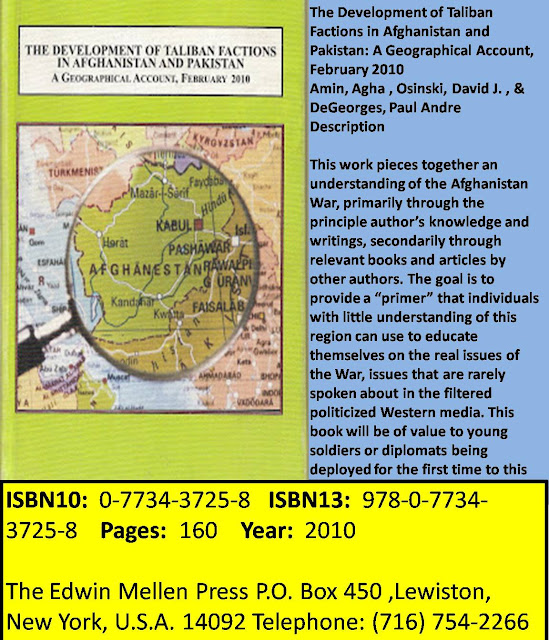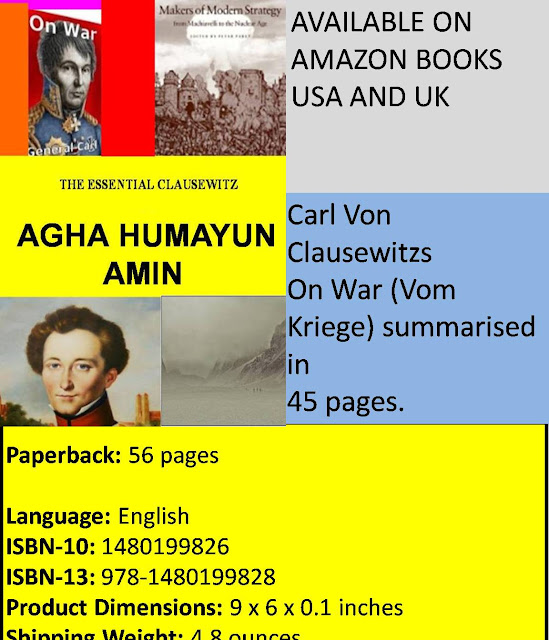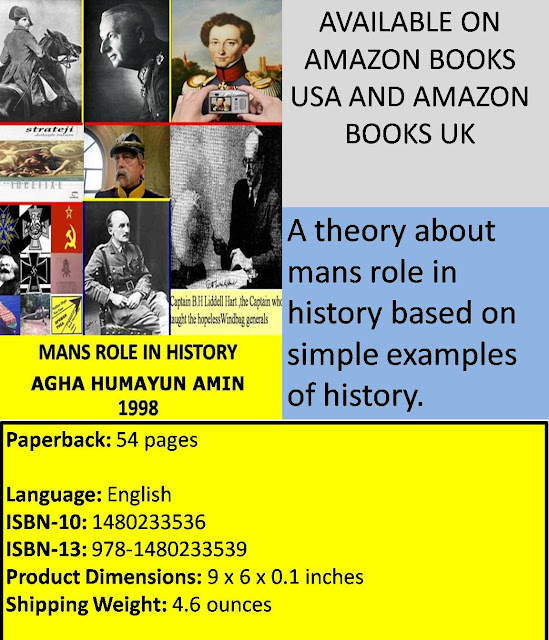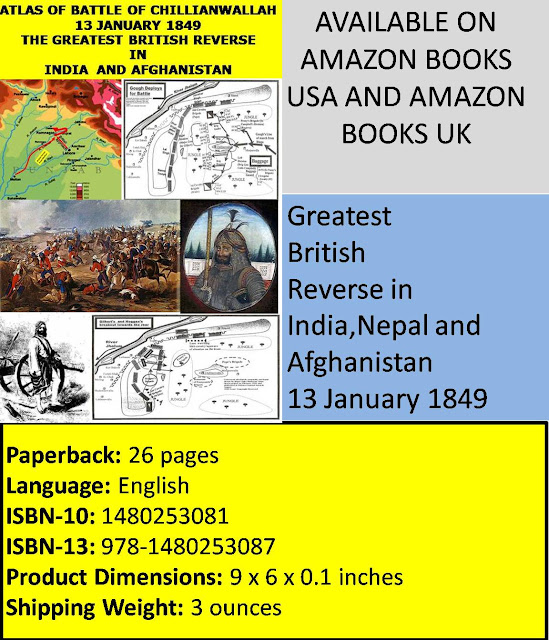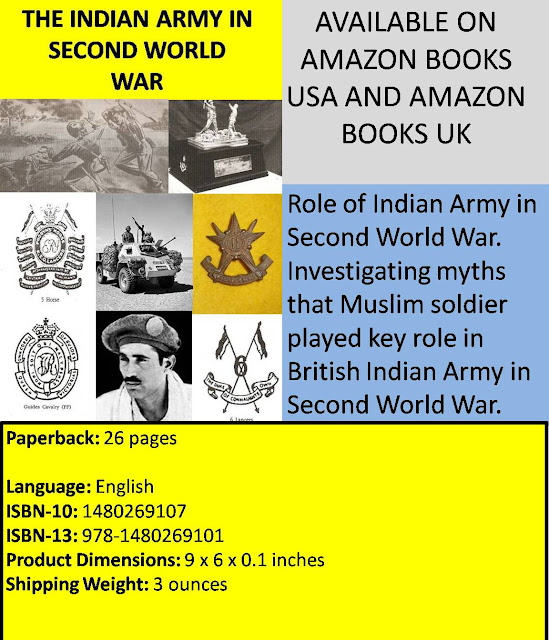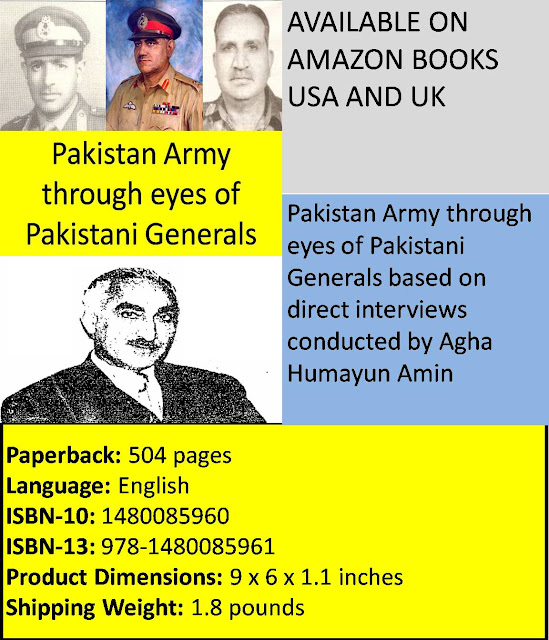The volatility of Gas, Geo-Politics and the Greater Middle East. An Interview with Major Agha H. Amin

Major Agha H. Amin is a retired Pakistani military officer and the author of various books, including "Development of Taliban Factions in Afghanistan", "Taliban War in Afghanistan" and "History of Pakistan Army". He studied at the Forman Christian College and at the Pakistan Military Academy in Kalkul.
Agha H. Amin has been working as Assistant Editor of Defense Journal, Executive Editor at the Globe, and as Editor of the Journal of Afghanistan Studies. He is an active member of the Think Tank ORBAT and the Alexandrian Defense Group and he is working as security management consultant.
Agha H. Amin has been working as consultant on various oil, gas and energy projects in Central Asia, Afghanistan and Pakistan, including the TAPI pipeline, CASA 100, the Uzbekistan Afghanistan Pakistan line and the Turkmenistan Mazar Sharif line. He is an expert on national and regional security, energy security and geo-political issues. The following is the full text of an interview by Christof Lehmann with Major Agha H. Amin from 30 January 2013.
CL. Not long ago we were discussing the situation in Syria, and the fact that the root cause for the attempted subversion of Syria is the 10 billion USD PARS gas pipeline project from Iran, via Iraq and Syria to the Easter Mediterranean Coast, the most important factors being the political leverage Iran would acquire if it, together with Russia provided more than 40 % of the gas consumed in the EU over the coming 100 – 120 years, a US and a US and UK attempt to sabotage the further integration of the continental European and Russian national economies and energy sectors. Both high ranking members of the Workers Party Turkey and retired Turkish military officers accuse the AKP government of Prime Minister R. Tayyip Erdogan of being involved in the implementation of the Greater Middle East Project, developed by the RAND Corporation for the US Defense Department in 1996. This plan includes the "balkanization" of Turkey into smaller states. We discussed a possible plan to establish a NATO Corridor from Turkey to India. In our discussion you said: "I would like to add to them that the establishment of the Kurdistan part of the corridor would significantly change the security dynamics of the Russian South Stream gas pipeline which is part of the causes for the war on Syria." Could you please brief us on the most important factors with regard to the security dynamics of the Russian South Stream gas pipeline ?
AHA. The strategic idea of NATO, is aiming at securing the northern borders of Israel against Hezbollah and the southern borders against Hamas; to eliminate the Russian naval base in the eastern Mediterranean, Syrian city of Tartous. NATO is planning to create a western strategic corridor to maintain energy-security in the case that oil supplies through the Strait of Hormuz are disrupted because of a war with Iran or otherwise.
 One of the first steps toward the implementation of the long-term strategic plan, is the partition of Turkey by creating separate Kurdish areas, thereby providing NATO a direct access to Russia´s soft underbelly in the Caucasus.
One of the first steps toward the implementation of the long-term strategic plan, is the partition of Turkey by creating separate Kurdish areas, thereby providing NATO a direct access to Russia´s soft underbelly in the Caucasus.
This can ideally be used to dominate the Caucasian oil as well as support the Chechen against Russia in a low intensity conflict. Also, to create a viable independent Kurd state, it would need a windpipe access to the sea. This can be provided via the southern coast of Turkey and the Northern Coast of Syria. Whether a Syrian government soldier or a Syrian Islamist "Nut" dies in the process, "both are equally beneficial to the US/NATO".
The cardinal strategic idea is to internalize the war within the Islamic world so that Europe and the USA become safer while the enemies of western civilization destroy each other.
NATO is a club of wolves and Turkey is the odd wolf in NATO. Once the wolves have eaten Syria, they will eat the odd wolf Turkey. Yes, Turkey has been getting huge funds from Saudi Arabia, especially the clown Islamist Freedom and Justice Party. The clown Islamist Party is corrupting Turkey´s secularism. On the other side, Turkey is playing as NATO´s best chattel.
To use a historic comparison. When Hitler started eating the lambs of Europe like the Sudetenland, Czechoslovakia and Austria, the world tolerated it. The limit was reached in 1939. It is comparable with the NATO, led by the USA, eating the lambs since 1991. First Serbia was destroyed, then came Kosovo, then came Afghanistan, Iraq and Libya.
I think and hope that Syria would be the turning point. With Libya a most negative practice of using Islamist mad dogs and proxies started. Al Qaeda and other most rabid Islamist groups were used in Libya and now again in Syria. The NATO is unleashing the same savages that it claims to fight in Afghanistan on secular states like Libya and Syria.
If Russia had not asserted itself, the wolves would have attacked Syria by now. These wolves only fear Weapons of Mass Destruction, WMD´s, and any state not having WMD´s will be shred into bits and devoured by the wolves. Lets hope that Putin proves to be like a new Moses who challenges the wolves who have the souls of Pagans.
CL. Considering the volatility of the situation in Syria and that a conflict of that nature easily can develop a dynamic on its own, even a dynamic that was neither planned nor wanted by any of the stakeholders, and considering that the aggravation of the crisis into a regional war with the involvement of Iran, Iraq, Syria, Israel, Lebanon, Jordan, the Gulf Arab States, Turkey and NATO countries as well as Russia could have catastrophic consequences,- furthermore considering that the situation as it is seems so that non of the stakeholders can win, but all can loose, which diplomatic, political and economic initiatives would you consider necessary and feasible to solve the crisis ?
AHA. "We are moving toward a great global war and supreme strategic anarchy by remote pilot".
This happened, because the pilots who were supposed to man policy and regulate the tide of history did not have the talent to exercise their due role in history ! These pilots in reality wore the uniforms of pilots but had the caliber of air stewards and air pursers! This includes Obama, Yusuf Raza Gillani, Man Mohan Singh and the Saudi king. This brought us into a Sarajevo situation, where events started moving decision makers rather than decision makers moving events.
Till 2008 the USA was led by an impetuous pilot with a low IQ but a definite strategic decisiveness. A man with limited intellect, but one who could take strategic decisions. After 2008 the USA got a social climber who looked outwardly smart and bright but lacked statesmanship and had near zero strategic vision. Thus Afghanistan, after 2008, moved from relative calm into anarchy, as far as the South was concerned.
Pakistan was the worst case. It was led by an opportunist who attempted to please all parties, including the Americans, Islamists, Pakistani liberals and the Indians. As as result Pakistan developed such a fatal "confusion of principle" that the whole Pakistani society was fractured down into its deepest foundations. This military opportunist in turn, made peace with the corrupt politicians to prolong his rule. Subsequently, the whole political fabric of Pakistan was shattered.
The Pakistani military was attacked by Islamists, for allegedly being in league with the Christian powers. The Pakistani military lost its entire credibility when it emerged as the main party in the controversial NRO deal, which legitimized past corruption of Pakistan´s politicians, which the army had prosecuted with zeal from 1999 to 2002. Pakistan became engulfed in two major insurgencies. One with the Islamists and the other in Baluchistan. Both have the potential to destabilize and even to destroy Pakistan.
The USA has no strategy in Afghanistan and is in a catch 22, unless it decides on a strategy of decisive action. While the US policy makers saw Pakistan as a center of gravity of Islamists, including the Afghan Taliban, the US failed to frame a decisive strategy for dealing with Pakistan. Pakistan´s nuclear assets, Chinese support, and a growing Russian support are principal obstacles that the USA faces in formulating a strategy of decisive action against Pakistan. Both Iran and Pakistan remain two strategic thorn lands that the USA faces and which are being constantly watered by China and Russia.
The Osama Raid and the Salala incident forced Pakistan´s military and political elite to close the NATO supply line to Afghanistan. The memogate scandal also increased the civil military divide in Pakistan but this appears to be more of a US ploy to divide and weaken Pakistan.
The key strategic trends in this scenario are the following:
Any US withdrawal, in totality or partially, would strengthen the Islamists in Afghanistan who will see full or partial defeat of the US as a great victory for Islam. This would destabilize Pakistan and increase the chances of a war between India and Pakistan.
The US missile shield has permanently alienated Russia, and Russia will re-assert itself and take the lead in aiding all anti US forces. US failure to correctly deal with Iran and Pakistan will further destabilize the situation. Pakistan´s nuclear assets will deter the US from any grand adventure against Pakistan.
The US´s chances of an internal pro US coup in Pakistan by the PPP have become week after the Osama bin Laden incident and the Salala incident. The chances of a military coup in Pakistan will get stronger as the situation moves and if the Pakistani´s ISI´s (Inters Services Intelligence-service) plan to bring a national government led by Imran Khan fails.
India still perceives Pakistan as a grave strategic threat and remains apprehensive of Pakistan's strategic nukes. This will ensure that the Indians will continue with aiding the low intensity war in Pakistan. The US will try to follow a policy that reduces Pakistan to a smaller size and confines Pakistan´s nukes to Punjab.
In the case of Baluchistan, it will not be difficult for the USA to Balkanize Pakistan if the USA decides to support Baloch secessionists. Karachi remains a strategic US asset with the MQM and other elements who can paralyze Karachi at few hours notice.
US policy will be difficult to formulate and execute. No nuclear state was ever denuclearized by war. The policy that the US will follow will be to destabilize Pakistan and to present it as a danger to world peace, like the Democratic Peoples´ Republic North Korea. In the process, even a small incident can initiate a grand strategic earthquake. God help the USA, Pakistan, India and the world.
CL. The US-led war on Afghanistan has now lasted for more than ten years. After NATO´s 25th Summit in Chicago in 2012 it transpired that NATO will maintain a presence in Afghanistan until at least 2014, and most likely until 2025 and beyond. NATO and western mainstream media continue marketing the argument that the NATO presence is necessary for fighting "the Taliban" and Al-Qaeda in Afghanistan. Furthermore, the US Aggressions in Pakistan, predominantly in the form of drone attacks increase, and are also being marketed under the slogan of combating "the Taliban". Could you please help us deconstruct the tale of "the Taliban" and elicit who is meant with "the Taliban", which nuances should we should be aware of. It seems that the USA in many regards is fighting an enemy which it creates.
AHA. To answer your questions, let me refer to my 2008 assessment. "Note that Obama is just a clever social climber, a mixed breed who was kicked upwards, a President with no control over anything."
The objectives are not Al Qaeda, the Taliban or bin Laden. The objectives are to attack Iran, Russia´s soft Central Asian State and oil-rich belly, to destabilize China´s Sinkiang province with an Islamist insurrection, to denuclearize Pakistan and to consolidate the US – India base against China after Pakistan has been Balkanized.
The objectives on the ground are neither Al Qaeda, the Taliban or Bin Laden. The droning of random targets continues to convince public opinion and gives the rich friends in the defense industry more ammunition and equipment contracts. US troops consolidate the oil transmission route on the herat Kandahar road.
 No real offensive is launched against the Taliban. They are the good reason for why the USA is in Afghanistan, so why would the US/NATO want to eliminate "them". US policy is pressuring Pakistan by the means of drone attacks, forcing Pakistan to take military action in Fata is designed to destabilize Pakistan so that final grounds for the denuclearization of Pakistan are being set in place. The US tools in this exercise are US contractors in Pakistan and Afghanistan, US and British security companies in Pakistan, US or EX-US Bankers and Corporate Executives in Pakistan who are subverting civil and military brass. Through the 2008 elections the US has already achieved a political regime change in Pakistan, while the Pakistani military, who are safeguarding Pakistan´s nuclear assets are the next target.
No real offensive is launched against the Taliban. They are the good reason for why the USA is in Afghanistan, so why would the US/NATO want to eliminate "them". US policy is pressuring Pakistan by the means of drone attacks, forcing Pakistan to take military action in Fata is designed to destabilize Pakistan so that final grounds for the denuclearization of Pakistan are being set in place. The US tools in this exercise are US contractors in Pakistan and Afghanistan, US and British security companies in Pakistan, US or EX-US Bankers and Corporate Executives in Pakistan who are subverting civil and military brass. Through the 2008 elections the US has already achieved a political regime change in Pakistan, while the Pakistani military, who are safeguarding Pakistan´s nuclear assets are the next target.
The objective to attack Iran and Russia´s soft Central Asian State oil-rich belly has so far been a miserable failure, with US proxies being checked bu Central Asia, Iran and China. However, secret training of proxies is going on in US bases in Afghanistan. With regard to the objective to destabilize the Chinese Sinkiang province with an Islamist insurrection, it is a logical objective, but there is the independent will of the enemy, backed with WMDs. China is "not" Iraq.
The denuclearization of Pakistan is proceeding at a good pace, although no major success has been achieved. The Pakistani civilian government is fully on the US payroll while it may take 2 – 5 years for the Pakistani military to become a full-time US chattel. With regard to the objective of consolidating the US – India base after Pakistan is Balkanized, the program for Balkanization includes a Baloch State, a Pashtunistan, a City State of Karachi, Sindhu Desh. A denuclearized Pakistan will only be consisting of Punjab and northern areas controlled by China. This is to take five to ten years. With Pakistan Balkanized the US and India will have a complete, contiguous base against China and Russia.
The Analysis.
The present US strategic position is the silent registration of targets in Pakistan, Iran, Chinese Sinkiang and Russian dominated Central Asia. By trying to base logistics on Russian Ex Soviet Central Asian states, the USA is trying to bring economic benefits to Central Asia, so that the Russian hold can be weakened. However, Russia is convinced, that the US must fail in Afghanistan and it has made considerable efforts to aid anti US forces in Afghanistan through Iran and through Central Asian republics. US forces will not be able to control Afghanistan unless Pakistan is Balkanized and this would at least take 3 to 5 years.
The first state to secede with US support would be Baluchistan. This is so, because the Base of anti US forces in Afghanistan is Pakistani Baluchistan, and Russia, Iran, and China have a combined interest in making the USA bleed in Afghanistan through Pakistani proxies known as Taliban. When Pakistan aids the Taliban in Afghanistan it is actually defending Pakistan. The maneuver to fix the situation for the USA would be an US manipulated India Pakistan war that would be leaving Pakistan severely damaged and India less damaged, followed by a denuclearization of Pakistan.
China, Russia and Iran are the US opponents. They have the potential to throw a spanner in US plans. There is the unforeseen Factor X.
There appears to be a strong evolving consensus in the USA as well as its NATO allies that Pakistan is the center of gravity of the Islamists in the ongoing, so-called war on terror. The idea gained currency in various high US policy making circles as well as think tanks around 1987 – 89 and then assumed a solid shape in the decade 1990 – 2000. After it was adopted as policy and concrete albeit top-secret planning was started to deal with Pakistan, which at the ulterior level was seen as part of the problem rather than a solution.
Let me also refer a 2006 assessment that is still valid: A Brief Strategic Assessment of US Presence in Afghanistan Made in September 2005. By Agha Amin.
The distinction between Islamist and non Islamist is being fast transformed into US versus Anti US Forces. Afghanistan may prove to be an area of strategic convergence for Islamists, China, Russia and even Pakistan and Iran which are logically phase two US targets. It is naive to think that the USA came to Afghanistan to deal with Talibs.
The choices of the USA: The USA has several choices. It can deal with Afghanistan alone and consolidate. This would not be cost-effective for the USA. The investment it has made is too big. It could widen the front to Phase Two, Pakistan and Iran. Phase Three may be Chinese Sinkiang and Phase Four Central Asian Republics. The US can also chose to withdraw from Afghanistan while retaining a central position to strike at any target in the area. Possibly and independent Baloch State, carved out of Iran and Pakistan alone at first and Pakistani Baluchistan later.
China´s and Russia´s Choices: China and Russia can allow the USA an uncontested stay and risk a Muslim rising in Sinkiang within the next ten years and US domination of Central Asian Republics. They can aid anti US forces, using non state actors in Pakistan and state actors in other areas, and they can strengthen alliances with Iranian and Pakistani states.
Pakistan and Iran's choices: Pakistan and Iran can either accept US domination and scrap WMD programs, strengthen alliances with China and Russia, or aid anti US forces in Afghanistan with Chinese and Russian blessings.
The Major Actors: The anti US forces are divided in two parts , state and non state actors. The main bases of non state actors are in Pakistan,Iran and Middle East. The Pakistani and Iranian states are the forward states having direct borders with Afghanistan and are involved in the Afghan game via state and non state actors.
Key Strategic trends: A realization in Pakistan, that the Pakistani WMD apparatus is a future target of the USA which will have Afghanistan as its base. A realization in both China and Russia that the strategic salvation of both lies in aiding anti US groups , particularly those in Afghanistan. The development of Pakistan as the best base area of anti US groups operating in Afghanistan more because of non state actors. In order to deal with non state actors, the USA at some stage, will have to deal with both Pakistan and Iran. The USA seems strategically clueless and is playing a waiting game. Time is the key. Anti US forces can wait for ten years but every second, the USA is losing money. The USA has to achieve a tangible strategical objective. Both China and Russia will use the Islamic card, like the USA used it in Afghanistan from 1979 till 1989.
Militarily, an anti US war in Afghanistan aided by China and Russia can prove to be USA's Spanish ulcer. Anti US forces in Afghanistan Pakistan and Iran are intact and can change the strategic balance. The USAs hold in Afghanistan is confined to key cities only.
The drug mafia is a major US opponent and can sustain anti US forces in Afghanistan. Islamists have realized that they must have China and Russia as allies. The same realization is taking place in China and Russia. Thus, there arises the convergence of interest.
The strategic options of the USA are: To create an alternate drug mafia which is non Pashtun and create new states, which are US allies like Baluchistan,Kurdistan. Possibly the USA could also work toward a non Pashtun state in North Afghanistan.
CL. In one of our discussions you said that there was a significant discrepancy between the areas where the USA is deploying drones and where the so-called "Taliban" attacks US troops. You also stated that many of the drone attacks are carried out in areas where the Pakistani military controls and secures the Af-Pak border while very few, if any drone attacks are carried out in areas where it would actually make sense. Could you please describe this in some detail and elicit the most important strategic as well as political implications ?
AHA. Drone attacks are being carried out in the two agencies North and South Waziristan and 90 % are carried out in the Datta Khel Sub District. These are aimed at Haqqani Group which is regarded as an ISI asset by the USA.
 A major aim with the drone attacks is also to benefit private contractors who are involved in these attacks at all levels from intelligence gathering down to munitions and drone suppliers. Another major idea is to demoralize the Pashtuns, so that any war against the USA would bring such a retribution that they will be unable to answer or match it with equal fire.
A major aim with the drone attacks is also to benefit private contractors who are involved in these attacks at all levels from intelligence gathering down to munitions and drone suppliers. Another major idea is to demoralize the Pashtuns, so that any war against the USA would bring such a retribution that they will be unable to answer or match it with equal fire.
CL. You stated that Iran has a significant interest in South West Afghanistan. WE hear very little about this in western media and I have not been able to find any detailed analysis in Iranian media either. Could you please give us your position on which role Iran is playing in Afghanistan ?
AHA. Iran is active in West Afghanistan as well as Central Afghanistan. Iran is a most important supporter of the Northern Alliance after Russia and India . Iran views the Taliban as an existential threat. It regards non Pashtuns as well as moderate Pashtuns as its allies.
CL. There is little doubt among analysts that the USA and some NATO member states are attempting to "balkanize" Pakistan into smaller nations. We observe increased activities of often Soros-funded UN agencies and NGOs, especially in Northern Pakistan, indicating an attempt to play on ethnicity. It is a standard strategy which has been used by the West in Yugoslavia, especially in Bosnia-Herzegovina, the strategy is currently being implemented in Nepal, and it is being implemented in Myanmar, in an attempt to create so-called inter-communal violence in Myanmar´s Rakhine State. Could you give us your perspective about attempts to destruct the nation-state Pakistan ?
AHA. Let me also here refer to a previous assessment which I made in April 2009. Every movement in history has a direction, a quantum, a modus operandi. According to the father of the philosophy of war Carl Von Clausewitz everything in strategy moves slowly, imperceptibly, subtly, somewhat mysteriously and sometimes invisibly.
The greatness of a military commander or statesman lies in assessing these strategic movements. The USA inherited a historical situation in the shape of 9/11.At this point in time it was not making history if we agree that 9/11 was the work of Al Qaeda for which so far the USA has failed to furnish any solid evidence.
After 9/11 when the USA attacked Afghanistan ,US leaders and key military commanders were making history. They had a certain plan in mind. The stated objectives of these plan were the elimination of Al Qaeda. The unstated objective was the denuclearization of Pakistan. This scribe has continuously held this position, held consistently, in articles published in Nation from September 2001,all through 2002,2003,2004,2005 and till 2009.
The US strategic plan followed the following distinct phases
*An initial maneuver occupying Afghanistan in 2001.
*Establishing and consolidating US military bases near the Afghan Pakistan border. Most prominent being the Khost, Jalalabad, Sharan and Kunar US bases. Some military bases like Dasht I Margo in Nimroz and three other bases in Kandahar, Badakhshan and Logar were so secret that their construction was not even advertised. Even in the case of sensitive areas the contracts were awarded to the US Government owned Shaw Inc and the CIA proxy operated Dyncorps Corporation.
Patriotic Afghans trained in the USSR were removed from Afghan Intelligence because they would not agree to be a party to USA's dirty game in between 2001 and 2007. Similarly many patriotic Afghan officers trained in USSR were removed from the Afghan military establishment.
* Cultivating various tribes in ethnic groups on the Pakistan Afghan border by awarding them lucrative construction and logistic sub contracts.
* Forcing the Pakistani military to act against the FATA tribes thus destabilizing Pakistan's North West area close to the strategic heartland of Peshawar-Islamabad-Lahore where Pakistan's political and military nucleus is located.
* Creating a situation where mysterious insurgencies erupted in various parts of Pakistan including FATA, Swat and Baluchistan.
* Carrying forward urban terrorism into Punjab through various proxies. Now it appears that the strategic plan is entering its final stage of launching a strategic coup de grace to Pakistan.
These may be assessed as following
* A US military buildup in Afghanistan and the launching of an offensive against Taliban, with an aim of pushing them into Pakistan.
* Simultaneously pressuring the Pakistan Army into launching an operation in Waziristan. Thus Pakistan´s Army gets severely bogged down and hundreds of thousands of refugees enter Pakistan's NWFP and Baluchistan provinces. Infiltrators and fifth columnists being a heavy promiscuous mixture of this movement.
* Since 2001 the USA has spent a great fortune collecting information on Pakistan's strategic nuclear assets. It appears that in 2009 it has sufficient data to launch a covert operation. The covert nuclear operation could have a civilian and a military part. The civilian part may involve an attack on Pakistan's non-military nuclear reactors like Chashma and KANUPP. The military covert operation could involve an attack on any of Pakistan's strategic nuclear groups anywhere in Pakistan.
Once this type of attack is done the USA with its NATO lackeys like Britain, France and Germany would go the UN and maneuver an international resolution, demanding the denuclearization of Pakistan. The international opinion may be so strong that Pakistan's government may capitulate.
* Once Pakistan is denuclearized, the USA would encourage Pakistan's Balkanization into a Baloch US satellite, a city-state of MQM in Karachi, a Pashtunistan badly bombed and in tatters and a Punjab stripped of nuclear potential, kicked and bullied by India. A Northern Area republic which is an US lackey unless China decides to call the US bluff by occupying the Northern Area.
CL. At closing, I remember that you stated, that international law was irrelevant because nothing had changed since the time of Alexander the Great. I agree that for instance the International Criminal Court has more to do with victor's justice than with international law. We see over the last decade a serious explosion of international law at its very root. The Geneva Conventions are circumvented by creating artificial constructs such as unlawful combatant, enhanced interrogation methods, the use of "contractors", as if they were workers to build public schools and hospitals, being deployed to maintain military tasks. Extraordinary rendition, just to mention a few of the most obvious problems. As a man of military education, which risks do you see in the deterioration of international law ?
AHA. We are heading towards an international new order where the power of the state will be totally in hands of a corrupt mafia, who will usurp all human rights on pretext of controlling terrorism. This would result in grand strategic anarchy and even the US will Balkanize. The boomerang will come back and as they say the wheel turns !
Interview with Maj. Agha H. Amin by Christof Lehmann
Related Sites:
The Development of Taliban Factions in Afghanistan and Pakistan: A Geographical Account, February 2010 [Hardcover]
Taliban War in Afghanistan-A Writers Transformed Perceptions from 2001 to 2011 [Paperback]
Pakistan Army through eyes of Pakistani Generals [Paperback]
MAPS By Maj. Agha H. Amin
Share:
About the Author
Christof Lehmann - Dr. Christof Lehmann is the founder and editor of nsnbc. He is a psychologist and independent political consultant on conflict and conflict resolution and a wide range of other political issues. His work with traumatized victims of conflict has led him to also pursue the work as political consultant. He is a lifelong activist for peace and justice, human rights, Palestinians rights to self-determination in Palestine, and he is working on the establishment of international institutions for the prosecution of all war crimes, also those committed by privileged nations. On 28 August 2011 he started his blog nsnbc, appalled by misrepresentations of the aggression against Libya and Syria. In March 2013 he turned nsnbc into a daily, independent, international on-line newspaper.
The Development of Taliban Factions in Afghanistan and Pakistan: A Geographical Account, February 2010
Amin, Agha , Osinski, David J. , & DeGeorges, Paul Andre
http://mellenpress.com/mellenpress.cfm?bookid=8028&pc=9
BOOKS ON PAKISTAN REVIEWED-AMAZON UK
Browse our Bookshelf Favorites store for big savings on popular fiction, nonfiction, children's books, and more. |
Book Description
Product Details
|
Military Leadership
Taliban war in Afghanistan
Atlas and History of Wars

THE ESSENTIAL CLAUSEWITZ
USA,ISI,AL QAEDA and TALIBAN-Setting Straight Bruce Riedels Strategic Narrative
1971 War
Mans Role in History
How a private English Company conquered a sub continent
Atlas of a great tank battle
Atlas of a bloody Indian Pakistan battle
A forgotten and Bloody British Failure
The Pakistani Tank Divisions Failure in 1965
Second World Wars Forgotten History
How Indian Army saved France and Suez Canal
Sepoy Rebellion of 1857-59 Reinterpreted
Pakistan Army through eyes of Pakistani Generals




